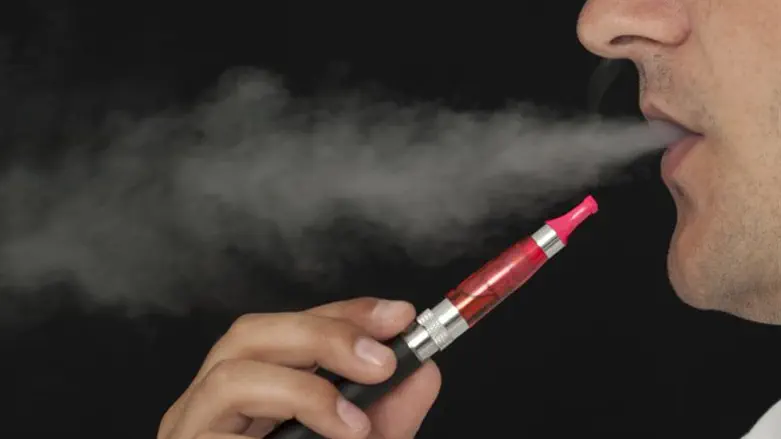
The World Health Organization (WHO) recently published a dramatic 120-page report on the global tobacco epidemic, devoting an entire chapter to electronic cigarettes (also called e-cigarettes) and declaring them "a gateway to conventional smoking among young people" which may cause the "renormalization of smoking in society. "
E-cigarettes, the report noted, are also used by tobacco companies as a way to increase their client base under a guise of aiding public health.
The report recommended countries ban the advertising and flavoring of electronic cigarettes, since they induce youth to try them. It also recommended governments adopt policies and regulations which will turn e-cigarettes into products which are not popular among youth, including forcing manufacturers to package electronic cigarettes in plain packaging.
The WHO also emphasized that to date, it has not been proven and cannot be claimed that electronic cigarettes help people quit smoking. Proofs for this are very limited, the report said, and there are a variety of different types of e-cigarettes, some of which, such as Juul, have never even been researched by the manufacturers themselves.
According to the report, ENDS (electronic nicotine delivery systems, also known as e-cigarettes and vaping pens, among other things), "are not harmless and must be regulated," and "tobacco industry interference" is "the greatest obstacle to reducing tobacco use."
"According to WHO, Member States that have not banned ENDS should consider regulating them as harmful products, and governments should implement the regulatory measures for ENDS that they determine are most appropriate for their domestic context," the report read.
"This may entail, for example, regulating ENDS as tobacco products, products imitating tobacco, or as a specifically defined category. Although the specific level of risk associated with ENDS has not yet been conclusively estimated, ENDS are undoubtedly harmful and should therefore be subject to regulation.
"ENDS regulation should: impede ENDS promotion to and uptake by non-smokers, pregnant women and youth; (b) minimize potential health risks to ENDS users and non-users; (c) prohibit unproven health claims from being made about ENDS; and (d) protect existing tobacco-control efforts from commercial and other vested interests of the tobacco industry.
"ENDS users should be legally banned from using ENDS indoors, especially where smoking is banned, until exhaled vapor is proven to be not harmful to bystanders and reasonable evidence exists that smoke-free policy enforcement is not undermined.
"The existing evidence shows that ENDS aerosol is not merely 'water vapor' as is often claimed in the marketing for these products. ENDS use poses serious threats to adolescents and fetuses. In addition, it increases exposure of non-smokers and bystanders to nicotine and a number of toxicants."
WHO emphasized: "Any forms of ENDS advertising, promotion and sponsorship must be regulated by an appropriate governmental body. If this is not possible, an outright ban on ENDS advertising, promotion and sponsorship is preferable."
Elsewhere in the report, the WHO noted that taxation of tobacco products is "the single most effective tobacco control measure."
It explained: "On average, a 10% price increase will reduce consumption by 5% in low- and middle-income countries (up to 8% in some instances), and by about 4% in high-income countries. Approximately half of this reduction is due to tobacco users quitting, and half due to existing users smoking less."
"To put these figures into perspective, a recent study estimated that a 50% price increase in 13 selected countries would cause 67 million people to quit."
The Israel Cancer Association said: "We support the WHO's stance and emphasize that recent research has already found that e-cigarettes contain poisonous and carcinogenic materials which may cause the development of cancerous growths, heart attack, stroke, and increased risk of heart disease, as even the manufacturers themselves - most of whom are partners or owners of old tobacco companies - admit. These companies continue to manufacture and market regular cigarettes, and they need new addicted customers."
